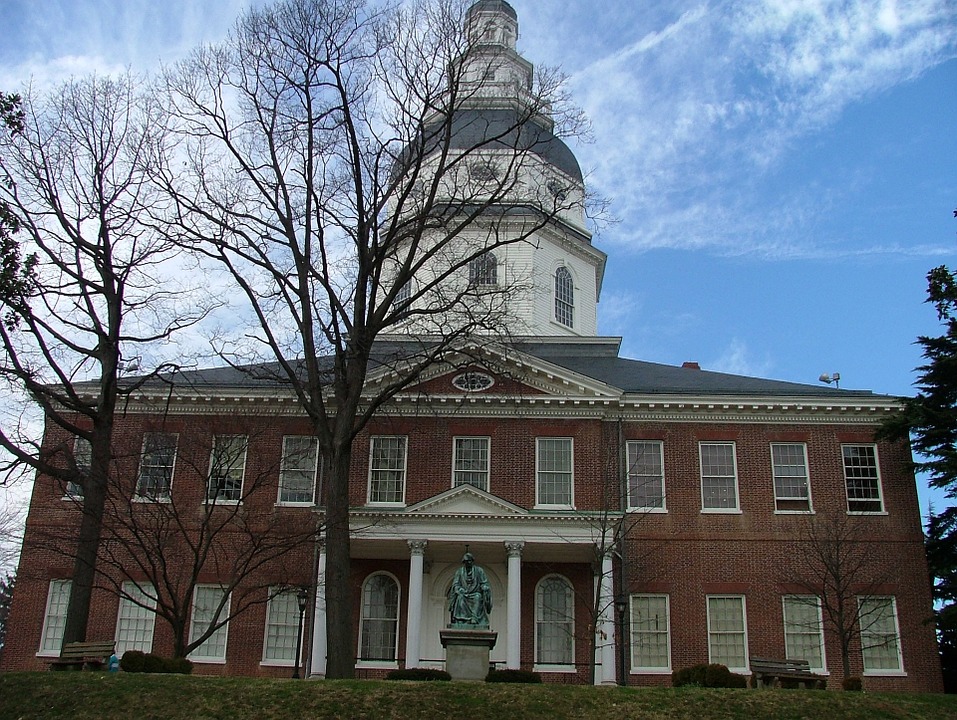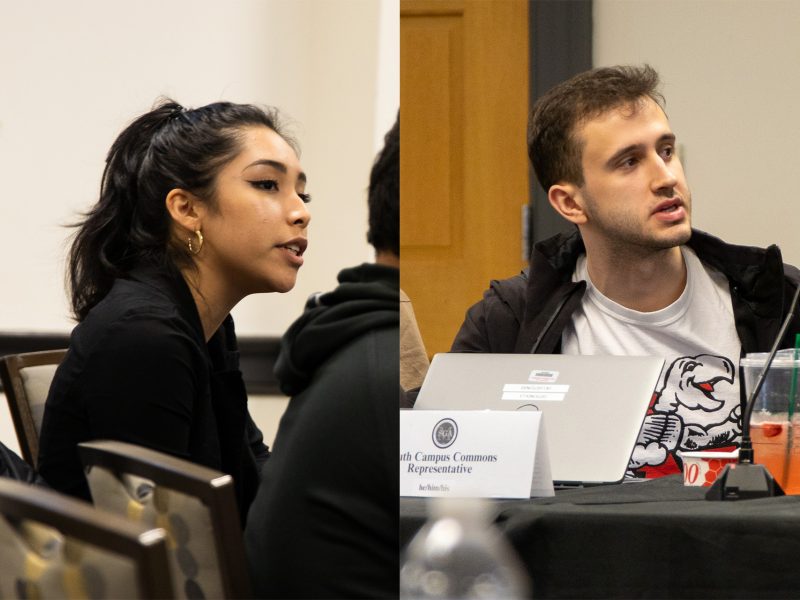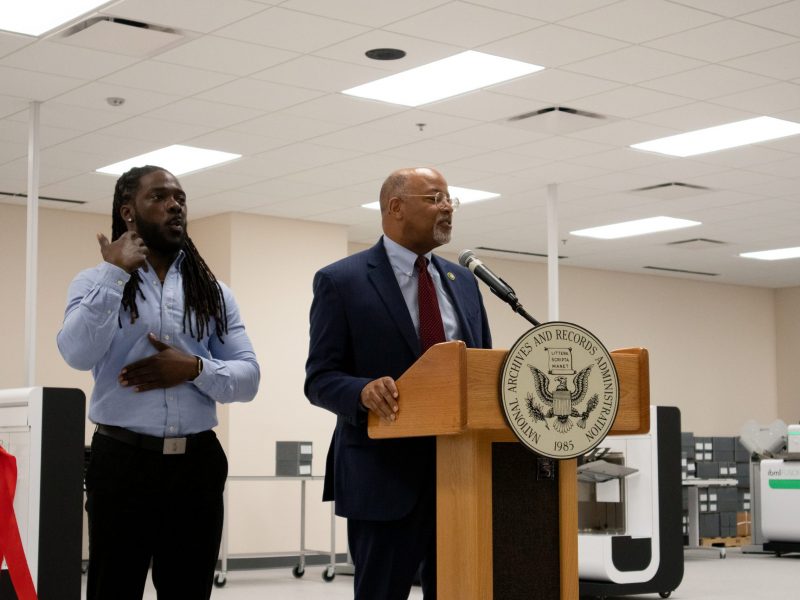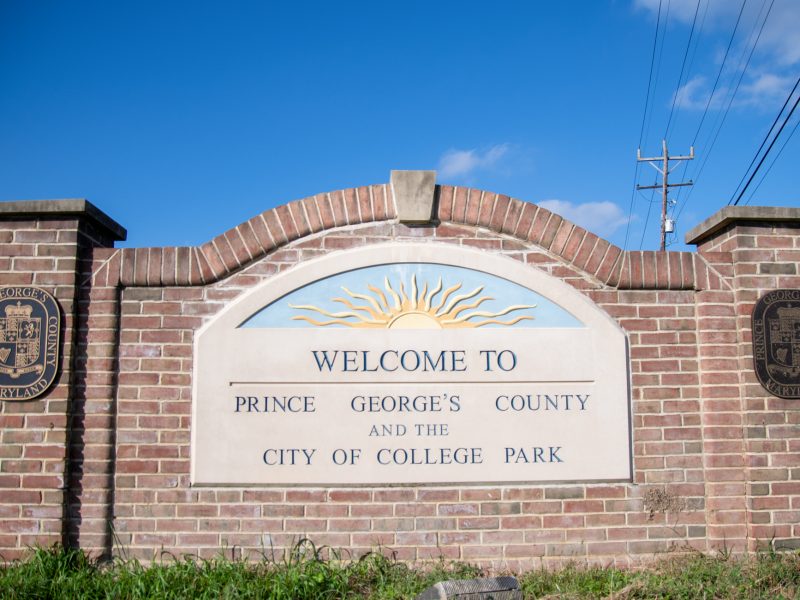The Maryland General Assembly’s 90-day legislation session came to an end Monday night, forcing various bills affecting college students and higher education institutions to wait until next year.
While the session saw the assembly take steps to promote textbook affordability in the state and prevent universities from asking about prospective students’ criminal records on initial applications, bills demanding 24/7 access to Plan B contraception, a gun ban on college campuses and student debt relief all failed to reach fruition by Monday’s deadline.
Notable actions from the session included the assembly banning fracking, mandating paid sick leave and taking steps to fight President Trump’s influence in the state. Following Trump’s election in November, the assembly voted earlier in the session to support Planned Parenthood if the organization lost federal funding, permit Attorney General Brian Frosh to sue the federal government and fight “privatization” of the state’s education system under Republican Gov. Larry Hogan and new Education Secretary Betsy DeVos.
[Read More: Maryland legislature approves bill expanding paid sick leave for nearly 700,000 workers]
Gov. Larry Hogan said Monday this year’s session might be the “most bipartisan session you’ve ever seen here,” despite the assembly’s anti-Trump proposals and rhetoric. As bills checking Trump’s power made it through the House of Delegates and Maryland Senate, Hogan’s administration also advanced bills this session to create jobs, tighten ethics standards, launch new road projects and fight the growing opioid crisis.
“This is all about compromise,” Hogan said. “This is the way government is supposed to work. … I believe in compromise — I’m pragmatic — and you can’t have every word of every bill get passed. But almost all of our major initiatives got done.”
College Apps and Criminal Records
The General Assembly gave final approval Monday of a bill that aims to expand access to college education for students who have a criminal history by preventing colleges and universities in the state from asking about a student’s criminal record on initial applications.
Del. Maggie McIntosh, the bill’s sponsor, said asking about a student’s record can deter prospective applicants from even applying, The Baltimore Sun reported.
Under the legislation, colleges and universities can indirectly ask about a student’s record through a third-party organization and consider this information when determining admission, campus residency or participation in university activities, so long as they do not “automatically or unreasonably restrict” admission based on criminal history.
The bill is part of a movement to “ban the box,” as many workplaces and colleges ask people with a criminal history to check a box on applications.
The House voted 92-46 to pass the bill with Senate amendments on Monday, sending it to Hogan’s desk for a signature or veto. The Senate passed the bill 39-7 earlier on Monday.
Textbook Affordability
The General Assembly passed the Textbook Cost Savings Act of 2017 to promote the use of open-source textbooks and other educational materials in the final days of its session.
The bill, sponsored by Maryland state Sen. Jim Rosapepe and Del. William Frick, will fund a $100,000 grant to the University System of Maryland’s William E. Kirwan Center for Academic Innovation to support the system’s open-source textbook initiative, which began in 2013.
[Read More: University System of Maryland gives 21 grants to promote open-source textbook use]
The grant will help develop a central open educational resource repository to share with all system institutions, and will help fund mini grants to universities to encourage teachers to adopt OERs in their classes.
Open-source resources, such as scholarly articles, are oftentimes free to use and are openly licensed — savings students hundreds of dollars on textbook costs.
The cost of textbooks has climbed 812 percent in the U.S. since 1978, according to the American Enterprise Institute. The system has already awarded 21 grants to some system institutions as of last month independent of the bill’s grant.
One volunteer from the University of Maryland’s MaryPIRG chapter — which presented its textbook affordability campaign to White House executives in February 2016 — testified in support of the bill during a committee hearing. This university’s Student Government Association also unanimously passed a resolution backing the bill during its Feb. 1 meeting, and has collaborated with University Libraries and Office of the Provost to create an online guide for professors interested in using OERs.
Plan B
A proposal calling for 24/7 access to over-the-counter emergency contraceptives on college campuses died in committee, but the bill’s sponsor — Del. Maricé Morales — said she “absolutely” plans to introduce this legislation again next year.
The bill would have required colleges and universities in the state to provide “on-site access to specified emergency contraception” during regular hours of operation and ensure around-the-clock access to over-the-counter emergency contraceptives, also known as the “morning after pill” or Plan B. Under the legislation, colleges and universities that could not afford to staff and operate a health center 24 hours a day could opt to sell emergency contraceptives in vending machines or 24-hour convenience stores.
[Read More: A Montgomery County lawmaker’s bill calls for 24/7 access to Plan B on college campuses]
Purchasing a vending machine for this purpose would cost a school no more than $3,800, according to the bill’s fiscal analysis.
Students from Terps Indivisible and this university’s chapter of American Association of University Women had advocated for the bill’s passage. The SGA voted unanimously to support the proposal on March 8, on the condition that costs of implementing the bill were reasonable.
Morales, D-Montgomery, said she hopes to introduce the bill earlier in session next year, adding that she didn’t know why the bill failed to advance out of committee.
“The fiscal note was pretty reasonable,” Morales said. “Unfortunately, I wish I had a reason for you. There wasn’t one given to me.”
Marijuana
Democratic proposals to legalize the possession, recreational use and sale of small amounts of marijuana also failed to advance out of committee.
Sen. Richard Madaleno, the bill’s sponsor, cited the Trump administration’s opposed stance on marijuana and drug use as one reason why.
[Read More: Democratic Maryland lawmakers are fighting to legalize recreational marijuana]
Attorney General Jeff Sessions has spoken against marijuana legalization, and White House press secretary Sean Spicer said in February that federal officials would likely pursue “greater enforcement” of federal marijuana laws. Obama’s administration had adopted a policy of “noninterference” with states, saying this should be treated as a public health issue like alcohol or tobacco.
Eight states and Washington, have legalized small amounts of marijuana for adult recreational use. A Goucher College poll released in February found that 58 percent of Marylanders support legalizing recreational marijuana.
“The Trump administration is looking to be potentially far more conservative with states that go down this path,” said Madaleno, D-Montgomery. “So I think that’s caused a degree of uncertainty that people want to see play out first before we go down a path that then potentially we’d have to reconsider.”
The proposals also stalled as lawmakers focused on addressing setbacks and delays in Maryland’s medical marijuana program, Madaleno said. A bill to diversify the state’s medical marijuana licensers in the state failed Monday after lawmakers could not reconcile differences between House and Senate versions before midnight. The Maryland Medical Cannabis Commission awarded preliminary licenses to 102 dispensaries in late 2016. The commission gave three of those licenses to dispensaries in District 21, which includes College Park.
Madaleno said he plans to pursue the legislation again next year.
“Everyone realizes that this is coming,” Madaleno said. “The public is okay with it, other states are succeeding at it … so I think there’s going to be growing enthusiasm for the measures that I presented.”
Guns on Campus
A bill banning guns from college campuses in this state failed to pass after stalling in a conference committee Monday.
Lawmakers in the conference could not agree whether the bill should carry a civil or a criminal penalty. The committee crafted a compromise — a first offense would be a civil violation with a $2,500 fine, while second and subsequent offenses would be criminal misdemeanors, jailable for up to two years — but not in time to pass the bill before the session ended at midnight.
[Read More: Maryland lawmakers pass bill to ban guns and firearms from public college campuses]
“We just ran out of time,” said Del. Ben Barnes, the bill’s sponsor who represents this university’s campus. “I think that we’ll start from scratch next year and go from there … we’re going to keep pushing it and we’re going to bring it back.”
The bill had previously passed 84-49 in the House of Delegates on Feb. 8. If it had passed, Maryland would have joined 17 states that have a ban on carrying a concealed weapon on college campuses. All University System of Maryland campuses currently ban deadly weapons unless under certain circumstances, system officials said. But passing a state law would codify the policy so that future governors, legislatures or Boards of Regents could not change it, Barnes said.
Consent Education
The assembly failed to pass a bill mandating public school consent education starting in fifth grade on Monday after lawmakers ran out of time to debate the proposal.
The bill would have required school districts to provide “age appropriate instruction on consent” as part of Family Life and Human Sexuality classes. The House of Delegates passed the bill on March 18, but the bill did not advance through the Senate. Advocates have called for expanding consent education on college campuses and beginning consent education at earlier ages in an effort to prevent sexual assault. California is currently the only state that mandates consent education at the public school level.
Sen. Michael Hough proposed an amendment on Monday to begin the curriculum in ninth grade, arguing there is no appropriate consent to sexual activity for fifth graders. Sen. Cheryl Kagan said age appropriate consent in fifth grade could include lessons like “stop means stop” when tickling or wrestling with a friend or sibling, with no reference to sexual activity.
The Senate delayed action on the bill the bill until later in the evening, and delayed the bill again at about 11:30 p.m. Kagan said she hopes the bill’s House sponsors bring the legislation back next session.
“I thought it was a really good bill and I was proud to defend it on the floor, but when time starts running out, controversial bills are a challenge,” Kagan said.
Student Debt Relief Act
Hogan said Monday that he was disappointed lawmakers “didn’t even take up” his bill to provide tax breaks on student loan interest.
The Student Debt Relief Act received House and Senate committee hearings in February, but did not advance.
The act would allow individuals making less than $200,000 a year and couples making less than a combined $250,000 a year to deduct 100 percent of interest paid on their student loan debt from their state income taxes. The proposal would save Marylanders $20 million a year, according to the governor’s office.



